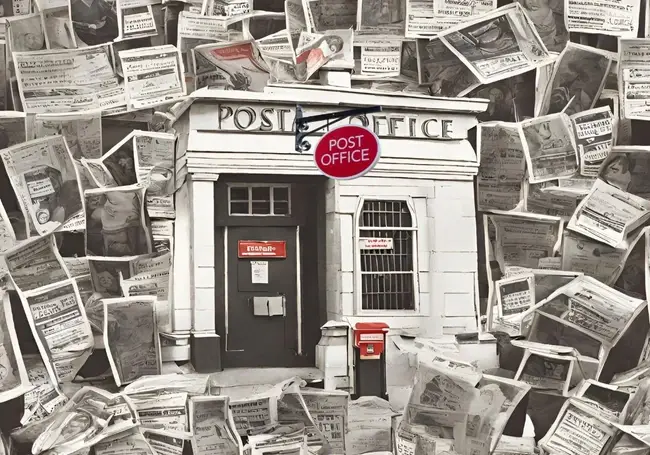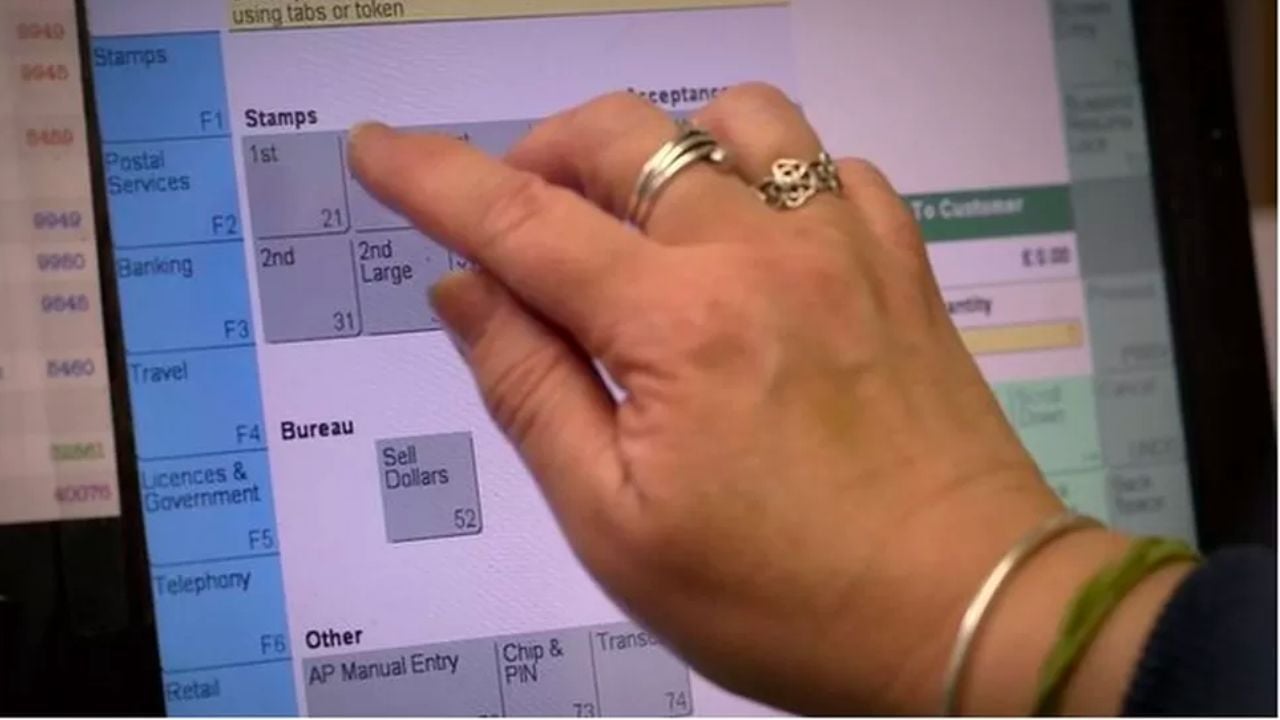The Post Office Scandal is in the headlines once again as people tune into Mr Bates vs The Post Office on ITV.
But as the 15-year-long saga plays out on television screens across the UK, the company behind the software that caused the scandal has been largely left out of the narrative.
This article re-tells the story of the post office scandal, exploring how Fujitsu's flawed Horizon software led to the false prosecution of over 700 Post Office workers.

What was the Post Office Horizon Scandal?
Between 1999 and 2015, more than 700 Post Office branch managers were given criminal convictions after faulty Fujitsu accounting software – called Horizon – showed that money was missing from their shops. This fault would lead to the Post Office scandal.
Many post office workers maintained their innocence and said they had repeatedly raised issues with the faulty software, but prosecutors refused to believe them and some went to prison for false accounting and fraud. Many were financially ruined.
It eventually emerged that the Horizon system was riddled with multiple flaws and bugs, leading to inaccurate financial calculations. The Post Office, however, initially refused to acknowledge the software's issues and continued to pursue legal action against sub-postmasters.
After years of campaigning and litigation from the sub-postmasters, the High Court finally ruled that the Horizon system was indeed faulty and unreliable, and a public inquiry was finally launched in 2020 to investigate the scandal.
So far, over 39 convictions have been quashed, but many sub-postmasters are still fighting for full compensation and the clearing of their names. But the public inquiry is ongoing, and the fight for justice continues.
Many sub-postmasters and their families have suffered immense hardship due to the scandal, and the long-term consequences are still unfolding.
The Role of Fujitsu in the Post Office Scandal
The post office scandal began in 1999 when the Post Office implemented a new computer system called Horizon to manage financial transactions at its branches. The system was developed by the Japanese company Fujitsu, for tasks like accounting and stocktaking.
The relationship between Fujitsu and the British government dates long before the system was introduced. Fujitsu had previously taken over the British firm International Computers Limited (ICL) - the company behind the Horizon software - in the 1990s.
ICL held several UK government contracts as the government had a policy that every computer over a certain size was bought from the company. The takeover therefore allowed Fujitsu to have an outsized presence in the UK as ICL's close ties to the government meant it was often the only bidder for government contracts.
So when it was time to install IT systems in the post office, Fujitsu won the contract instantly, despite its Horizon software being riddled with bugs and technical flaws.
What was the fault with Horizon software?
Fijutsu's Horizon software was riddled with technical faults, including rounding errors, data corruption, and issues with synchronization between local and central databases.
The software was also closed-source, making it difficult for sub-postmasters to verify the accuracy of their accounts or investigate discrepancies after they occurred.

This meant that sub-postmasters often lacked access to detailed transaction logs and system logs, making it difficult to challenge the software's calculations or identify specific errors.
Read: Royal Mail Cyber Incident Strikes Postal Service
To make matters worse, Horizon operated on a "presumption of guilt" model, meaning sub-postmasters were held personally liable for any financial shortfalls, regardless of whether they were responsible.
This placed a significant burden on them to prove their innocence, and some attempted to fill the gap with their own money as their contracts stated they were responsible for any shortfalls, leading some to bankruptcy.
Others were falsely prosecuted for theft and false accountancy, with some even being sent to prison as a result of their presumed guilt.
Even after the Horizon scandal, Fujitsu's products are still deeply entrenched in the government's IT infrastructure. To the anger of some MPs, the company was still winning new government contracts as recently as this September and it is the third biggest IT supplier to the UK government.
Fujitsu said in a statement that it was fully committed to supporting the inquiry so it can learn from the events stretching back two decades.
"The inquiry has reinforced the devastating impact on postmasters' lives and that of their families, and Fujitsu has apologised for its role in their suffering," the firm said.
Is Fujitsu truly to blame for the scandal?
Fujitsu has admitted in a public hearing it was “shameful and appalling” that lawyers defending Post Office sub masters prosecuted over missing funds were not told of 29 faults detected as early as 1999 in the Horizon software it built.
Fujitsu's Europe Chief Paul Patterson said in a hearing on Friday that the “vast majority” of bugs, errors and defects (BEDs) in the Horizon system were shared with the Post Office contemporaneously.
But he said the company failed to provide the level of information it should have in a range of cases including that of Lee Castleton, who was made bankrupt after being ordered to pay a £25,000 shortfall that didn't exist and £321,000 in legal costs after the high court ruled in the Post Office’s favour.
When the bugs were acknowledged, Fujitsu's witness statements were edited by the Post Office as it sought to maintain the line that the system was working well as it pursued innocent people through the courts.
The Post Office initially dismissed early reports of faults and sub-postmasters raising concerns about Horizon and insisted that the software could not not inaccurate. This delayed acknowledging the software's faults and hindered efforts to address the issue.
The Post Office aggressively also pursued legal action against sub-postmasters for alleged theft and fraud, even in cases where they had raised clear concerns about the software.
This resulted in numerous wrongful convictions and caused immense personal and financial hardship for many families.
What happens now?
The public inquiry into the scandal is still ongoing, and further details about Horizon's role and the Post Office's handling of the situation may still emerge.
The inquiry aims to establish the full extent of the scandal, identify those responsible, and recommend steps to prevent similar injustices in the future. Its findings are expected later in 2024, and could significantly influence the course of events.
Many sub-postmasters are still fighting for full compensation and the clearing of their names. These legal processes could take years to resolve, depending on the number of individual cases and appeals.
If you have been watching ‘Mr Bates vs the Post Office’, this sums up the absolute scandal. I have been so moved by this series. #PostOfficeScandal #AlanBates pic.twitter.com/vXGU6ceNnd
— Rachel Bradley (@RachelMorag99) January 2, 2024
To date, a total of 93 convictions have been overturned. This included 39 postmasters' convictions being quashed in a single ruling at the Court of Appeal in April 2021. Of the 93 convictions that have been overturned, however, only 30 of those people have agreed to full and final settlements.
The government, which owns the Post Office, has now also said that measures are being considered to clear the names of hundreds of sub-postmasters convicted. It previously said Post Office workers who have had wrongful convictions for theft and false accounting overturned are to be offered £600,000 each in compensation.
Then Prime Minister Rishi Sunak announced that the victims of the scandal would be exonerated and compensated with a new law. The UK government also announced an "upfront payment" of £75,000 which will be made available to hundreds of postmasters. It is not clear in what form or on what timetable the new bill will be presented.
The amount of payments for full and final compensation paid out to victims stands at £17.3m.
Following another breach in June 2024, The Post Office has confirmed that victims would receive £5,000 or £3,500. The pay discrepancy depends on whether the address that was published was current. In a statement they confirmed that individuals had been contacted either directly or through solicitors. If your name was impacted by the 2024 breach and you have not received payment information be sure to contact The Post Office.




Comments ( 0 )